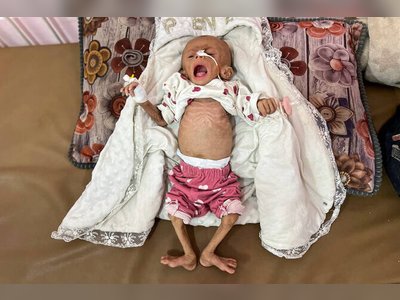
UK Scientists Pioneering Three-Person IVF Technique to Combat Hereditary Disease
Eight healthy babies born using advanced fertility method that incorporates DNA from three individuals.
In a groundbreaking development in the field of reproductive medicine, UK doctors have successfully birthed eight children through a novel in vitro fertilization (IVF) technique that incorporates genetic material from three individuals.
This innovative approach is aimed at preventing devastating hereditary diseases linked to mitochondrial dysfunction.
Mitochondria are the tiny energy-producing structures within our cells responsible for converting nutrients into vital energy for cellular functions.
Defective mitochondria can lead to severe and often fatal conditions, including severe disability and early death in some cases.
This genetic disorder is typically passed down from mother to child due to the maternal inheritance pattern of mitochondrial DNA.
The three-person IVF technique involves combining the egg from the prospective mother with sperm from the father, along with a healthy mitochondrion from a donor woman.
This ensures that the resulting child inherits most of their genetic blueprint from their parents while receiving a minuscule amount — approximately 0.1% — of DNA from the donor.
This pioneering method has been legal in the UK for over a decade, but its success in producing healthy children free from inherited mitochondrial diseases is now confirmed after initial trials at the Newcastle Fertility Centre.
The results, published in the New England Journal of Medicine, show that while all eight babies were born without mitochondrial disease, one child experienced epilepsy and another presented with an abnormal heart rhythm — conditions not directly attributed to defective mitochondria.
These findings offer new hope to couples who carry the genetic burden of mitochondrial diseases, some of whom have faced the loss of multiple children due to these inherited disorders.
The scientific breakthrough also raises significant implications for the future of fertility treatment and the potential prevention of inherited metabolic disorders.
The UK's legislative framework approved this technique in 2015, following a parliamentary debate that considered concerns about altering human genetic inheritance and the potential risks associated with such interventions.
Despite these concerns, supporters argue that the method could save lives and prevent suffering for countless families affected by mitochondrial diseases.
While the initial success of the three-person IVF technique is promising, further research is deemed essential to refine understanding of its limitations and optimize treatment outcomes.
The advancements highlight the delicate balance between harnessing scientific progress for therapeutic purposes and addressing the potential risks and societal concerns associated with genetic manipulation.
This innovative approach is aimed at preventing devastating hereditary diseases linked to mitochondrial dysfunction.
Mitochondria are the tiny energy-producing structures within our cells responsible for converting nutrients into vital energy for cellular functions.
Defective mitochondria can lead to severe and often fatal conditions, including severe disability and early death in some cases.
This genetic disorder is typically passed down from mother to child due to the maternal inheritance pattern of mitochondrial DNA.
The three-person IVF technique involves combining the egg from the prospective mother with sperm from the father, along with a healthy mitochondrion from a donor woman.
This ensures that the resulting child inherits most of their genetic blueprint from their parents while receiving a minuscule amount — approximately 0.1% — of DNA from the donor.
This pioneering method has been legal in the UK for over a decade, but its success in producing healthy children free from inherited mitochondrial diseases is now confirmed after initial trials at the Newcastle Fertility Centre.
The results, published in the New England Journal of Medicine, show that while all eight babies were born without mitochondrial disease, one child experienced epilepsy and another presented with an abnormal heart rhythm — conditions not directly attributed to defective mitochondria.
These findings offer new hope to couples who carry the genetic burden of mitochondrial diseases, some of whom have faced the loss of multiple children due to these inherited disorders.
The scientific breakthrough also raises significant implications for the future of fertility treatment and the potential prevention of inherited metabolic disorders.
The UK's legislative framework approved this technique in 2015, following a parliamentary debate that considered concerns about altering human genetic inheritance and the potential risks associated with such interventions.
Despite these concerns, supporters argue that the method could save lives and prevent suffering for countless families affected by mitochondrial diseases.
While the initial success of the three-person IVF technique is promising, further research is deemed essential to refine understanding of its limitations and optimize treatment outcomes.
The advancements highlight the delicate balance between harnessing scientific progress for therapeutic purposes and addressing the potential risks and societal concerns associated with genetic manipulation.











